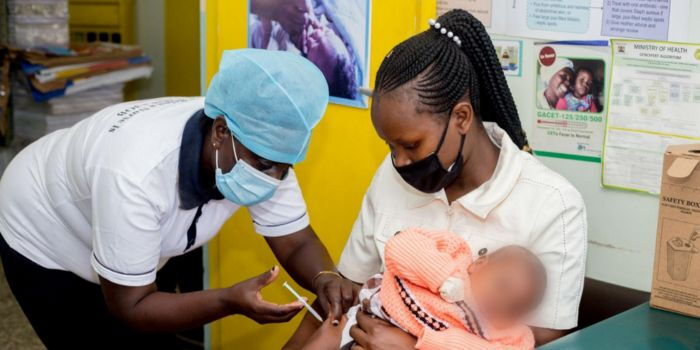Teaching Children Kindness and Gratitude

Instilling kindness and gratitude in children is essential for their overall development, fostering caring individuals and improving emotional and social growth. Teaching these virtues from an early age helps them build strong relationships, gain self-esteem, and develop empathy. Understanding and practicing kindness and gratitude prepares children for meaningful connections and a positive outlook on life.
Kindness helps children form better relationships, while gratitude improves their sense of happiness and well-being. Research indicates that children who regularly practice thankfulness are more optimistic, have improved mental health, and perform better academically. Nurturing these qualities equips children to be thoughtful and emotionally intelligent, influencing how they interact with others and perceive the world. The earlier these values are instilled, the more natural they become.
Practical Ways to Teach Kindness:
Model Kind Behavior: Children learn by observing and mimicking adults. Consistently modeling kind actions, such as helping neighbors or offering compliments, demonstrates the positive impact of thoughtful behavior in daily life.
Teach Through Thoughtful Purchases: Making ethical shopping choices, like selecting products from brands that prioritize sustainability and social good, teaches children that kindness includes supporting others and making responsible decisions. For instance, choosing clothes from boutiques that prioritize comfort and ethical practices shows that thoughtful decisions matter.
Encourage Acts of Kindness: Encourage children to engage in positive actions, from simple gestures like saying “thank you” to helping siblings or donating toys. Setting kindness challenges and keeping journals can reinforce that being kind is a daily habit.
Praise Kindness: Reinforcing kind behavior through praise is essential. Acknowledge considerate actions and explain their positive impact. Complimenting thoughtfulness and generosity teaches the value of empathy and respect, making these actions a natural part of their behavior.
Incorporating Gratitude into Daily Life:
Start a Gratitude Practice: Each evening, ask children to share three things they are grateful for. This helps them focus on the positive aspects of their life and fosters appreciation.
Model Gratefulness: Children learn appreciation by observing adults. Express thanks throughout the day to model gratefulness.
Encourage Gratitude Through Giving: Whether it’s sharing toys, creating handmade gifts, or donating to those in need, teaching children that gratitude involves giving back reinforces its importance.
Making gratitude a regular part of a child’s daily routine helps build a habit that boosts their happiness and teaches them to appreciate the little things in life.
In conclusion, teaching kindness and gratefulness involves incorporating these values into daily life through small acts of thoughtfulness and regular expressions of appreciation. With consistent effort and patience, children can learn to appreciate what they have and understand the importance of spreading kindness to others.
Recommended Articles
AXA Mansard Employees Champion Fight Against Domestic & Sexual Violence

AXA Mansard has mobilized over 900 employees in a significant campaign against domestic and sexual violence, particularl...
Kenya Launches Child Vaccination Program Against Typhoid and Measles-Rubella

Kenya's Ministry of Health is launching a nationwide immunization campaign from July 5-14, 2025, targeting children unde...
Omowunmi Ajiboye Clarifies Relationship with Segun Ogungbe

Yoruba actress Omowunmi Ajiboye has finally set the record straight on her relationship with Segun Ogungbe, denying marr...
Expert Insights on Polio Vaccination

Polio is a highly infectious viral disease preventable through vaccination, especially in children. The disease can mani...
Shifting Adoption Landscape in India

Adoption rates in India are on the rise, with a record number of children finding families in recent years, exemplified ...
You may also like...
Diddy's Legal Troubles & Racketeering Trial

Music mogul Sean 'Diddy' Combs was acquitted of sex trafficking and racketeering charges but convicted on transportation...
Thomas Partey Faces Rape & Sexual Assault Charges

Former Arsenal midfielder Thomas Partey has been formally charged with multiple counts of rape and sexual assault by UK ...
Nigeria Universities Changes Admission Policies

JAMB has clarified its admission policies, rectifying a student's status, reiterating the necessity of its Central Admis...
Ghana's Economic Reforms & Gold Sector Initiatives

Ghana is undertaking a comprehensive economic overhaul with President John Dramani Mahama's 24-Hour Economy and Accelera...
WAFCON 2024 African Women's Football Tournament

The 2024 Women's Africa Cup of Nations opened with thrilling matches, seeing Nigeria's Super Falcons secure a dominant 3...
Emergence & Dynamics of Nigeria's ADC Coalition

A new opposition coalition, led by the African Democratic Congress (ADC), is emerging to challenge President Bola Ahmed ...
Demise of Olubadan of Ibadanland
Oba Owolabi Olakulehin, the 43rd Olubadan of Ibadanland, has died at 90, concluding a life of distinguished service in t...
Death of Nigerian Goalkeeping Legend Peter Rufai

Nigerian football mourns the death of legendary Super Eagles goalkeeper Peter Rufai, who passed away at 61. Known as 'Do...